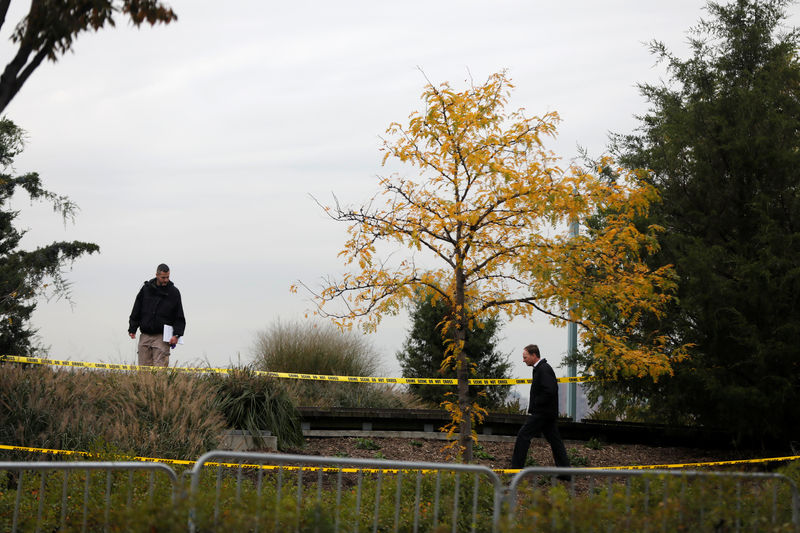By Yeganeh Torbati
WASHINGTON (Reuters) - A visa program aimed at diversifying the U.S. immigrant population came under attack from President Donald Trump on Wednesday after he learned that the man accused of killing eight people in New York City on Tuesday used it to enter the country.
Sayfullo Saipov, who was charged in Tuesday's truck attack, immigrated to the United States from Uzbekistan in 2010 after winning a lottery enabling him to obtain a so-called "diversity visa," two government officials confirmed to Reuters.
The program, established by Congress and coordinated by the State Department, has its roots in efforts to bring more Irish and Italian immigrants into the United States. Citizens of countries that send relatively few immigrants to the United States can enter a lottery that grants winners permanent U.S. residency. Applicants must have at least a high school education or its equivalent, or relevant work experience.
Just under 11.4 million applicants entered the 2016 lottery for 50,000 slots available to winners and their close family members, according to State Department figures.
The visa program has succeeded in diversifying the mix of immigrants that come into the United States each year, but has also drawn criticism for being vulnerable to fraud and for posing national security risks.
Trump said on Wednesday he would ask Congress to "immediately" initiate efforts to kill the program, and Republican House Judiciary Committee Chairman Bob Goodlatte, who has long called for an end to diversity visas, said in a statement that they pose "a threat to the safety of our citizens."
Senate Democratic leader Chuck Schumer helped create the program in 1990 when he was a member of the House of Representatives. But he was also part of a group of lawmakers in 2013 who crafted a bipartisan immigration bill that would have done away with the program. That bill was passed by the Senate but was killed by the Republican-led House.
Top congressional Democrats on Wednesday defended the program, saying it subjects all visa recipients "to the same stringent vetting as all other immigrant visa programs."
The only other known instance of a diversity visa beneficiary carrying out a deadly terrorist attack in the United States occurred in 2002. That year, an Egyptian man who had received a diversity visa through his wife years earlier shot and killed two people in a Los Angeles airport. The man had earlier sought asylum in the United States but was rejected. Ultimately, he was allowed to stay in the country after his wife won the lottery.
As early as 2004, the State Department's then-deputy inspector general, Anne Patterson, told Congress her office believed the diversity program "contains significant vulnerabilities to national security" and that terrorists could "attempt to use it to enter the United States as permanent residents." The agency watchdog recommended barring citizens of countries that sponsor terrorism from the program.
Over the years, government audits have exposed sophisticated fraud schemes targeting the program, including extortion rackets, sham marriages and the use of fake identification documents.
In 2007, Congress's Government Accountability Office issued a report noting that federal law enforcers "believe that some individuals, including terrorists and criminals, could use fraudulent means to enter or remain in the United States."
The report found, however, "no documented evidence" that diversity visa immigrants "posed a terrorist or other threat."

A September 2013 State Department inspector general report found that "organized fraud rings masquerading as travel agencies" had hijacked the diversity visa program in Ukraine. Under the scheme, Ukrainians were entered in the lottery without their consent, and then held up for money in exchange for the chance to claim a visa or encouraged to enter into sham marriages if they won.